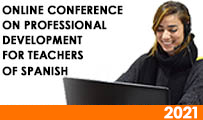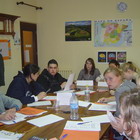

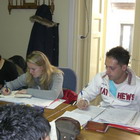

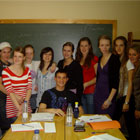



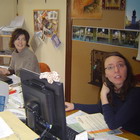

Frequently Asked Questions (FAQ) about the Spanish teacher courses
-
Do I need to know the grammar to take the course?
No, but you should handle it very well: that is, you have to speak correctly even though you do not understand perfectly the theory behind it. In the tutorials you will be told what to learn and how to study it on your own. If you are not a native Spanish speaker, you must have at least a B2 level to complete this course.
-
Can I attend a class as an observer? How many? Can I also conduct a class whilst being observed?
For the in-school courses you will be able to attend as an observer to a minimum of 10 classroom hours. If you also want to also give classes, you should talk with the director of Studies, as it will depend on the levels available at the moment, your training and your performance on the course.
-
What is included in the certificate that you get with the course?
The certificate that is given or sent at the end of the course is a diploma issued in the name of the student indicating the course name, with its detailed description, the number of total hours, the corresponding levels studied according to the European Union reference frame. In the case of the basic online course it would be: 30 hours and levels A1 to B1. In the case of extension of the online course and the in-school course, it would be: 80 hours and levels A1 to C2. If the student has also had teaching practice in actual classes (which can happen in the in-school courses), these practices will be certified as a separate document.
-
Is the certificate that is obtained with the course recognised?
As always, the recognition depends solely on the entity to which the certificate is submitted. We are aware that many universities, colleges and institutes acknowledge it, in different countries like England, Belgium, Germany and the United States.
-
If I hand my CV in to the job centre at the end, will there be job opportunities?
Yes, but depends on your performance during the course and the results you have obtained, as well as if there are any vacancies.
-
What is the timetable for the tutorials in the online course?
The tutorial sessions can take place Monday through Friday between 8:30 am and 8 pm (Spanish peninsula time, GMT+1), subject to availability. The dates and times of the tutorials will be agreed upon before the start of the course.

Site map - info@tiatula.com - ProfesoresDeEspanol.com (Spanish Version)
Tía Tula, Colegio de Español, S.L. - c/ Palominos, 23 - 37008 - Salamanca (España) - Condiciones legales







